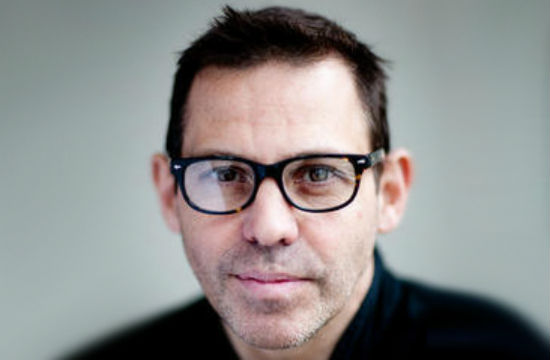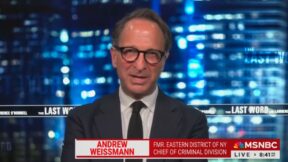John Tesar On Top Chef Inspiration, Producer Interference, And How The Show Ruins Careers

“I mean, Top Chef really did change my life…”
In Part Two of our interview with John Tesar (you can check out Part One here), we delved into his time on Top Chef: Seattle. From jump street, he was the easy villain of Season 10, referencing his “Most Hated Chef In Dallas” magazine cover in his very first intro. But behind the scenes, he was slowly warming up his competitors, and learning to navigate producers’ plots for the show. After the season wrapped, his Top Chef nemesis Josh Valentine actually moved from Oklahoma to Dallas — Tesar’s hometown — to work for Matt McCallister at FT33.
Check out our Q&A with John below for more on how competing inspired his restaurant, what was going down behind the scenes (including, apparently, a lot of Xanax), and which Top Chef alumni he thinks tanked their careers after the show.
John Tesar: I mean, Top Chef really did change my life…
The Braiser: Did it?
I’ve always had to kick the door down. And when you watch yourself on TV and you see the interaction of yourself and others, in initial segments… Because, you know I was older, more experienced, Josh [Valentine] was there, I had no idea that he was going to work for Matt McCallister, and he’s since left. So you see all of these dynamics, and you see yourself, and you see the way people react to you. And I’m going like, ‘I don’t need to piss everybody off or prove to them that I’m John Tesar and I’ve done all of these things blah blah blah blah.’ Just try to be yourself.
And, you see, somewhere in the middle of it, like Brooke [Williamson] starts to like me, and that was real, we got to know each other. I wasn’t trying to put on this façade of proving to myself that I can be better than everybody else. So the competitive nature of me kind of just slowed down a little bit. I saw what I really needed to do, which was just kind of be strong and be honest, and be honest with myself. Just go back to work. Forget about the TV. I knew those things were going to come, because I was on Top Chef, or I was hoping they would come. Like even being with Andy Cohen; it’s superficial, but it was on my bucket list to be a bartender on Watch What Happens Live. I love the show, you know?
You have goals and you try to achieve them, that’s just the way I live. My goal was to open up. I looked out the window every morning, and I saw the Puget Sound, and I go, ‘Dude, you’re a seafood guy! You’re in Texas, you’re in a land-locked — don’t go back and open up some bistro, some mediocre restaurant everyone’s gonna like for six months or a year. Do something that Dallas has never seen before. What do you have to lose? Another restaurant? John Tesar: the para-pathetic chef?’
It’s so strange being misunderstood but also surviving at the same time. And then you have the media kind of interested in you, so you don’t want to abuse their interest or the fact that you have something to show them, or lead them into, or stories to tell. And then you still have to develop a restaurant and develop your life. I spent all that time on Top Chef watching the generational shift. Watching your generation — what you need, what you like, what you feel is important.
Because my father, the only thing that disturbed me about him was that he didn’t want to change with the times. And I think that’s the biggest mistake anybody can make getting older is not paying attention to the generations behind you. Because they really are the future. They are a force to be reckoned with in a hard industry, and you are really going to define what you’re going to eat, and what you think is cool, and I have to pay attention to that. I really do. Otherwise, I can’t provide service for guests — that’s the hospitality of it. It’s not just for 65-year-old women, it’s for you and your peers. So, you put that all together and that’s why Spoon, I think, is working out so well. We have the integrity, we have the product, we have seafood, which Dallas has never, ever experienced before.
So was doing Top Chef in Seattle a little bit of an inspiration to find seafood again?
It was. I stayed behind a week after I got off the show. [Production] let me stay. They really are just wonderful people, unless you piss them off. But I did. They knew I was professional. I got ten great shows out of it. I mean, people kind of told me I was the interesting person for the first ten episodes. If that’s true, thank you. And I’d like to do more of it.
You like TV?
I wouldn’t want to have my own show, but I do like being a participant in some competitive cooking show. I just enjoy the fun of it. And it’s not to beat you. I love to cook; it’s really what I do. It’s really hard to be like a media person and a “rock star.” This is just who I am. I was raised in New York City. I came up with every French chef here, I had my own restaurant in the Hamptons when I was 24, in the ’80s, you know, the disco era. I was weaned on excitement, and Studio 54, and nightclubs, and the beach, people who had private jets and all this stuff.
In one way, my mentality was spoiled, but on the other hand, I’m this middle class kid whose parents came from Queens, living in Manhattan. My parents were lucky enough to have a house in the Hamptons, because my father bought it in the ’40s. I’ve always had this duality about who the real John Tesar is and who is John Tesar going to be, because of all of the variables in my life: being adopted, those circumstances I just explained to you, and finding myself. And strangely enough I found myself on Top Chef.
As a viewer, there was a very palpable shift between you being the aggressive instigator and then you showing some restraint and mellowing out. I actually thought your exit was very sweet.
They really respected me [in editing]. They did that. It’s masterful how they do it after ten seasons, they understand the personalities. And they don’t let you know, you get sucked in. I don’t care, even Stefan [Richter], they worked him like he thought he was going to win. And then in the end they leave Sheldon [Simeon] and Josh together. Thank God Josh finally had the baby, otherwise he might have been [in the finale]. But that’s what they do, you know, they hook you in.
So the night before [I was eliminated], we went to the Modernist Kitchen, and had a 22-course dinner, and then we went to The Palace, which really was the biggest dump in the world. There were no pots at all. I actually should have cooked the risotto better. It was just a really bizarre morning, you know, the events, and the exhaustion, and the mental deprivation were really taking their effects on me. And I had this pending — I have to go back and open a restaurant. There was a lot of push me, pull you. You don’t see your family at all. So I just had a sense, I was talking with Stafan before we went to bed, we were having one last glass of wine, and I said, ‘I think I might be going home tomorrow.’ You see the dynamic; [judges] start to distance themselves from you.
They detach! They sense that the breakup is coming.
They sense that the breakup is coming and the producers say, ‘This is a perfect time to let Tesar go, because if we let him get into the final five or six, he’s going to start cooking like he really knows how to cook, and it’s going to be ridiculous.’ And I was the same way: do I want to look like a desperate guy and start beating these 28-year-old people who should be Top Chef? And the whole time they’re always asking me, ‘Who do you think?’ And I said, ‘Kristen!’ And they sent her home on Restaurant Wars on purpose.
That smacked of producer interference.
Such a plant! That’s when I was just like, it’s produced, and they’re really good at what they do. So the whole thing with the pickles and the interview, they let me go with that. And when we had to do the burger, I was like — that day, Josh and I should have gone home for that pork dish. It was terrible. And it was Josh’s fault, I mean, this is a pig guy who couldn’t sear a pork tenderloin. How do you be the pork guy, and then go home and be a pastry chef, so you can compete against my restaurant, and go for attention in the local press? I mean it was planned from the beginning. I often find in this business, or when you use television or media as a plan, it never works. The only thing you have to do is go back to your restaurant, put your head down, and cook. The people will tell everybody where the food is, where the restaurant where you should be is. And I learned that this time.
FT33 was like the biggest thing in Dallas when I got back, they were doing modernist. You know, putting something in a squiggly line or putting blossoms on something doesn’t make it taste better — it makes it look beautiful. It’s new. It’s like Eleven Madison Park, it’s interesting. And those restaurants do have a lot of depth and history. So Matt just picked up a book and started imitating it, and it was new and fresh for Dallas — it was yummy, it’s that generational shift. They don’t want to go to these stuffy palaces.
If this is what people want, I’m going to be better, but I’m going to keep my mouth shut this time, as much as I can. Shoo the press away and not let them hype us. There was already enough hype about these other restaurants. And it’s worked. And putting my head down and working and cooking every night — it’s been the greatest thing for me. I really missed it last night. I’m really glad to be here in New York, doing these kind of things, but really, I just want to cook. I want to open up another restaurant, I want to have a company, I want to empower young people. I want to leave that as my legacy — not that I knew Anthony Bourdain when I was down on my luck, or that I’m an asshole. Which is not true. I swear that if you get to know me, I’m a pretty nice guy. And I don’t care about anything besides cooking, and my friends, and hopefully getting some sleep one day.
Fighting the urge to use Top Chef as a leg up and keeping your head down instead is interesting to me.
I never had any watching party. I never hyped Top Chef. I was like, really? People were like, ‘Are you going to have a viewing party?’ I don’t even have a TV in my apartment!
‘Everybody stop eating dinner right now and watch me on TV!’ Tiffany Derry, I love her. She’s such a strong and sweet girl. But Top Chef… it’s [the same with] Casey Thompson: it ruined their careers. Same thing with Trey [Wilcox]. They never put a body of work together. Anybody that gets off Top Chef could take that two-year fast lane, and go on the cruise, and shake hands, but you’re not making money, and you’re definitely not doing anything to get better as a chef or progress. And then you go back, and you use all of this ego and inertia, and then you start ripping off other restaurants.
Somebody wrote an article — it was Pat Sharpe in Texas Monthly — she said I was doing fusion food but that it wasn’t broken into a million pieces. And I think young chefs have a problem with breaking things into a million pieces. They want to be David Chang, they want to be Eric Ripert, whoever’s the hot guy at the moment, and they want to put it all together. Because you can’t just rip one person off, you can’t just riff off one guy. You’re taking a million pieces, and you’re trying to make it into a restaurant, and it doesn’t work, because you don’t own those dishes. You have to work. Even if you went to a restaurant, and you wanted to take a dish off of another restaurant’s plate, you still have to work at that dish. You have to work it, you have to own the technique of it, you have to see if it’s financially feasible. You also have to see if the guests enjoy it. And it’s amazing, because I can cook the same dish, and I can guarantee you that I can take ten people, put them in two separate rooms and I would serve you a dish from Le Bernardin and I would serve you a dish from my restaurant, and I would tell you that this dish was from Le Bernardin, and you would like that one better. Not 100% of the time, but perception is — there’s a lot of urban legend in our business, and it is theater to a certain extent.
Tell me more about the shift that happened when your Top Chef compatriots began to warm up to you.
Yeah, more the feminine characters on the show, because they were probably the better cooks this season. Brooke and Kristen were — they wanted a woman to win this year, it was obvious. Because Stephanie [Izard] is the only woman who’s ever won, and it’s just that time, you know, and it’s not that they manipulated it. I mean, Kristen works at a ten-seat restaurant that does tasting menus, and works with basically two other people. If I went on Top Chef now, after being at Spoon for the last — I would probably blow through the first twelve episodes and win like, every episode. Not that I would win, but it would be apparent [that I was talented], I wouldn’t struggle like I did. Because I hadn’t cooked for like, seven months before I went on Top Chef. That practice every day is valuable. But she just has a natural talent.
And the funny part is that Brooke and Kirsten are opposites. Brooke is Martha Stewart, and Kristen is the chef of Mugaritz, and their style, and their approach to things…it was very interesting to watch them compete. Being a chef at this period in time, and having a lot of judgment on young chefs and cooks: Kristen is going to be somebody in this business. Brooke is going to be a restaurant owner, and a mother, and probably be a successful business woman, if she keeps it together, but Kristen is going to be a bad-ass chef ten years from now.
Even in our episode, that first episode, when I was at Craft… I mean, they lock you up in a hotel room, they take everything away from you, they don’t tell you when they’re picking you up, you’re upside down. I think if you’re young and inexperienced, you’re probably just going, ‘Hey, I’m gonna be on Top Chef!’ But I’m like, ‘Am I going to get on the show? Am I going to humiliate myself?’ I have like, that New York Jewish comedian mentality. I’m always expecting the worst before the best, so I do everything backwards that way. They take you in a white van, they take you to Craft, and they tell you you’re going to cook, and our job was to stage, and have Tom [Colicchio] give us a job. I just went in there, and I focused, I acted like I was going to work. I didn’t pay attention to the cameras, I knew the pastry chef, because he was the pastry chef at Craft in Dallas. So I’m talking to him, I give him a big hug, and I just lay down my salmon, and I had some octopus. And I’m asking, ‘Do you want me to cook it this way or that way?’ The directors were just going, ‘Okay, we gotta get him out of here.’ So they made it look like I was screwing up the fish or something, so Tom’s like, ‘See you in Seattle.’ I was just like, ‘Yesss.’ It was nice.
That Quickfire I won was probably the best food I did. I think after that I just started worrying too much. What happened on Top Chef was that when I won the first few Quickfires… you get addicted to winning Quickfires. You learn how to win a Quickfire, and you’re not paying attention to anything else. Or you use up all your energy. You’re like, ‘I won? How do I do that again? Or can I do that again? Or will I ever do it again?’
[This interview has been edited and condensed.]
RELATED: John Tesar Talks Celebrity, Mommy Issues, And The Other Mrs. Bourdain
Have a tip we should know? tips@mediaite.com






